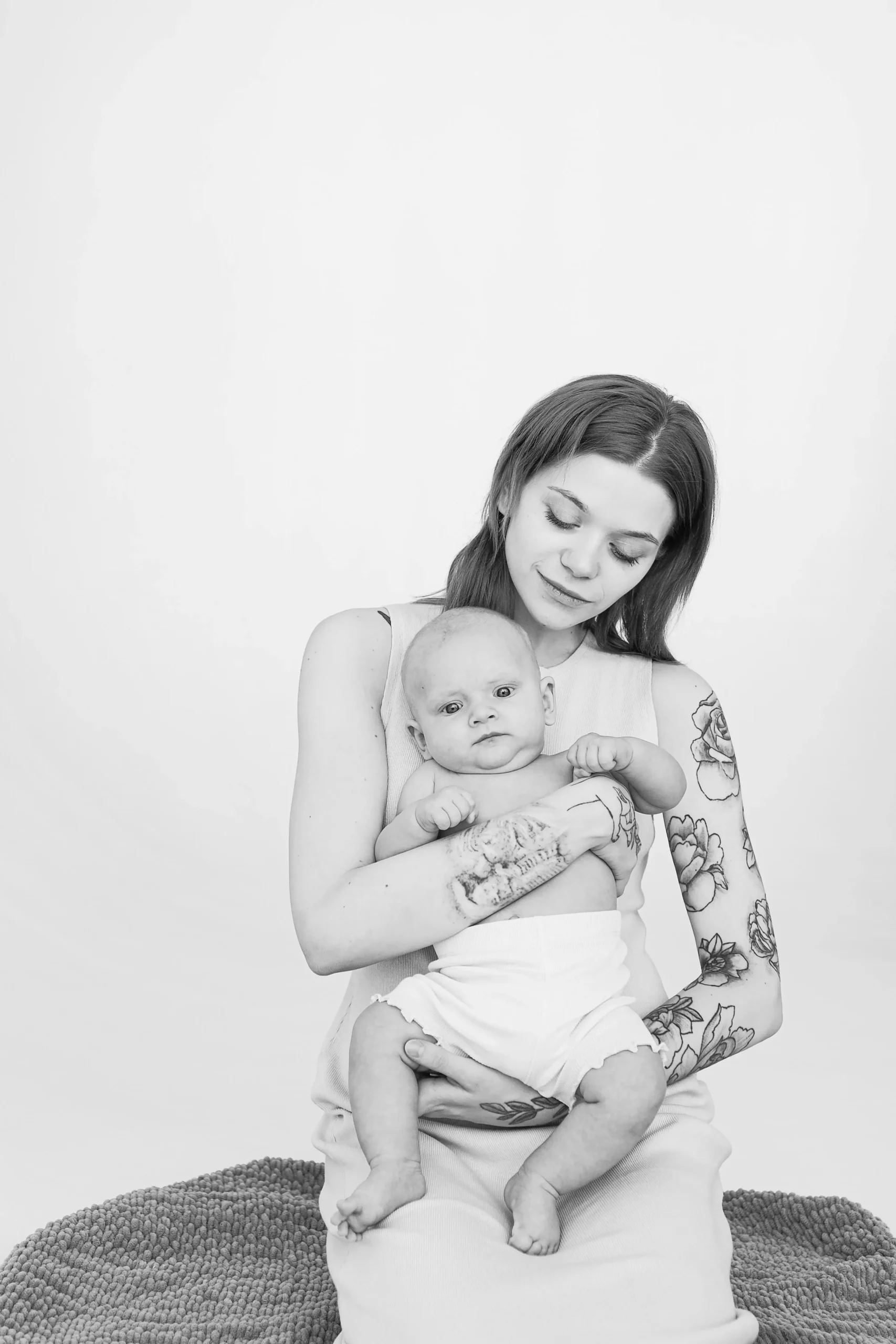Online & In-Home Therapy for
Postpartum Mental Health | NJ
Online therapy for Postpartum Depression and Anxiety makes accessing mental health resources easy and convenient. At Mind by Design, we understand the beauty and challenges that come with the perinatal & postpartum phase. Our therapists are dedicated to offering personalized care, ensuring you find solace and strength during this transformative time.
The journey from pregnancy to parenthood is a blend of joy, anticipation, and unexpected emotional challenges. While many are familiar with postpartum depression, there’s a spectrum of emotional and psychological responses that can emerge during or after pregnancy. Addressing these feelings is pivotal, as unchecked stress and anxiety can cast a shadow over one’s holistic well-being.
With a commitment to excellence, our therapy services are tailored to meet these distinct challenges. Trust in our experienced therapists to guide and support you towards a path of healing and balance.
Inclusivity at mbd
Every individual’s experience with birth and parenting is unique. At Mind by Design, we champion inclusivity, ensuring our therapeutic services resonate with parents from diverse backgrounds and identities. Recognizing the spectrum of identities, we warmly welcome LGBTQIA+ individuals during their prenatal and postpartum phases. Our space is a sanctuary to discuss the intricate intersections of parenting with race, gender, identity, and more. With a steadfast commitment to anti-racism and anti-oppression, we stand by every individual, no matter their identity.
Distinguishing Postpartum Depression
From " Baby Blues"
Navigating pregnancy and the subsequent year can be a rollercoaster of emotions. Did you know that mood disorders, encompassing anxiety and depression, touch nearly 1 in 5 expectant or new mothers? If you’ve found us amidst your search for answers, remember, you’re not alone. PMADs, or perinatal mood and anxiety disorders, stand out as the most prevalent complications during and post-pregnancy.
While the “baby blues” – a brief period of mood swings and sadness post-childbirth – is common, PMADs delve deeper. These disorders persist, often impacting daily life and routines, demanding attention and care. Distinguishing between the baby blues and more severe conditions is crucial. If you or someone close is grappling with post-birth emotions, seeking professional guidance is paramount. While the baby blues are transient, fading with time and support, persistent symptoms might hint at deeper concerns warranting medical intervention.
Indicators of Baby Blues

- Unexplained bouts of crying
- Persistent fatigue and sleep disturbances
- A sense of disconnection or clouded thinking
- Growing apprehension around the newborn
- Unfounded irritability or heightened anger
- A pervasive feeling of change, leading to a loss of self-identity
Symptoms Of Postpartum Mental Health Challenges
- Depression & Mood Disorders during & after pregnancy
- Anxiety disorders during & after pregnancy
- Psychotic Episodes during & after pregnancy
- Obsessive-Compulsive Behavior during & after pregnancy
The journey of pregnancy and the subsequent postpartum phase can be accompanied by a myriad of emotional and psychological challenges. Let’s delve into the specifics:
Therapy for Postpartum: A Spectrum
Experiencing mood fluctuations? If you find yourself grappling with the following symptoms consistently for more than a fortnight, you might be navigating the waters of a perinatal or postpartum mood disorder:
- Intense bouts of anger or heightened irritability
- Disrupted sleep patterns
- Challenges in focusing or memory lapses
- Hesitation in decision-making
- Neglecting personal hygiene and self-care
- Appetite changes leading to weight variations
- Struggling with daily chores
- Regular episodes of crying or feeling emotional
- Disproportionate concern or indifference towards your newborn
- A growing disinterest in previously enjoyed activities
- Withdrawing from social circles
- Developing negative sentiments towards your infant
- Overbearing fatigue
- Overwhelming feelings of guilt or self-deprecation
- Experiencing harmful thoughts towards oneself or the baby*
- Experiencing hallucinations or irrational thoughts*
*In case these symptoms resonate with your current state, it’s imperative to contact a healthcare professional or dial 911 immediately. Your well-being is paramount.
Types of Postpartum Mental Health Challenges
While anxiety is a universal emotion, its excessive presence, especially during or after pregnancy, can be indicative of a deeper issue. A surprising 10% of women in their prenatal or postpartum phase grapple with pronounced anxiety symptoms, often overshadowing the symptoms of depression.
Postpartum depression (PPD) is a mood disorder that affects women after childbirth. It is characterized by feelings of sadness, anxiety, and exhaustion that can interfere with a mother’s ability to care for herself and her baby.
- Onset: Typically arises within the first few weeks after childbirth, but can appear at any point within the first year.
Symptoms: Persistent feelings of sadness, hopelessness, and worthlessness, difficulty bonding with the baby, and overwhelming fatigue. - Potential Causes: A combination of physical changes, hormonal shifts, and emotional adjustments.
- Treatment: Therapy, medication, and support groups can help manage symptoms.
- Prevalence: Affects approximately 1 in 7 women after childbirth.
PPA (Postpartum Anxiety) is a condition where new mothers experience excessive worry, restlessness, and nervousness after giving birth. Unlike postpartum depression, it focuses more on anxious thoughts and behaviors rather than depressive symptoms.
Onset: Can begin during pregnancy or arise within the first year after childbirth.
Symptoms: Constant worry, racing thoughts, disturbances in sleep and appetite, and physical symptoms like dizziness or hot flashes.
Potential Causes: Hormonal changes, previous anxiety disorders, and the stress of a new baby can contribute.
Treatment: Cognitive-behavioral therapy, medication, and relaxation techniques can be effective.
Prevalence: While exact numbers vary, it’s believed that postpartum anxiety might be even more common than postpartum depression.
4. Postpartum Psychosis
Postpartum Obsessive-Compulsive Disorder (OCD) is a condition where new mothers experience unwanted and intrusive thoughts, often centered around the baby, accompanied by compulsive behaviors or mental acts. It’s a specific form of OCD that arises after childbirth.
Onset: Usually appears within weeks after delivery but can develop anytime within the first year postpartum.
Symptoms: Intrusive, often disturbing thoughts about harm coming to the baby, compulsive behaviors like repeatedly checking on the baby, and avoidance of certain situations or triggers.
Possible Causes: Hormonal changes, increased responsibility of caring for a newborn, and previous OCD tendencies can contribute.
Treatment: Cognitive-behavioral therapy, exposure and response prevention, and sometimes medication.
Prevalence: Estimates suggest that around 3-5% of new mothers may experience symptoms of postpartum OCD.
Postpartum psychosis is a rare and severe mental illness that can occur after childbirth, characterized by a sudden onset of psychotic symptoms. It is a medical emergency and requires immediate attention due to the potential risk to both the mother and the baby.
Onset: Symptoms typically emerge within the first two weeks after delivery.
Symptoms: Hallucinations, delusions, extreme mood swings, confusion, and disorganized behavior.
Possible Causes: While the exact cause is unknown, factors like hormonal changes, sleep deprivation, and a history of bipolar disorder or previous postpartum psychosis can contribute.
Treatment: Hospitalization is sometimes required, along with antipsychotic medications, mood stabilizers, and sometimes electroconvulsive therapy (ECT).
Prevalence: Occurs in approximately 1 to 2 out of every 1,000 deliveries, making it much rarer than other postpartum mood disorders.
Factors Influencing PMADs

Therapy for Postpartum Mental Health doesn’t indicate “failing parenthood”. Instead, it’s important to recognize how common it is and remember that mental health challenges don’t discriminate; they can affect individuals across all demographics. However, certain environmental stressors can make some more susceptible to these mental health challenges:
- Hormonal shifts during and post-pregnancy
- Personal or familial history of depression or anxiety
- Past instances of alcohol or drug misuse
- Continuous life stressors
- Complicated pregnancies or post-birth hospitalization of the baby
- Insufficient social support
Duration & Implications of Unaddressed
PMAD
The span of postpartum depression can differ among individuals. Some might find relief from therapy for postpartum challenges within weeks, while others might grapple with symptoms for extended periods. But with the right treatment, healing is not only achievable, but probable.
Unaddressed PMADs can ripple through the family. New parents battling these disorders might find bonding with their newborn challenging, potentially affecting the baby’s growth and development. Older siblings might feel neglected, heightening their risk for academic or behavioral issues. Moreover, untreated PMADs can strain familial relationships, amplifying stress.
Prioritize getting therapy for postpartum mental health in New Jersey
Navigating the maze of perinatal mental health becomes smoother with the guidance of a specialized therapist. Engaging in our online therapy in New Jersey can help individuals:
- Address depression
- Combat anxiety
- Manage anger or irritability
- Counter paranoia
- Regulate mood fluctuations
- Boost Coping Skills
- Address marital challenges as needed
how online therapy helps new parents reclaim their happiness
While various therapeutic techniques cater to perinatal mental health, Cognitive Behavioral Therapy (CBT) and Interpersonal Psychotherapy stand out for their efficacy. These strategies delve into the unique challenges of new parenthood, rectify counterproductive thought processes, and nurture social connections, facilitating holistic wellbeing.
Cognitive Behavioral Therapy (CBT)
CBT empowers individuals to pinpoint and rectify detrimental thought cycles and behaviors linked to PMADs. By confronting these cognitive distortions and adopting pragmatic coping mechanisms, parents can better handle the stresses of childrearing, reducing anxiety and bolstering mental health. Therapy for postpartum mental health remains evidenced based in practical applications.
Interpersonal Psychotherapy
This type of therapy for postpartum mental health focuses on the enhancement of interpersonal relationships and social support—crucial during the perinatal phase. By addressing communication barriers and role transitions, it fosters healthier connections and robust support networks, promoting emotional resilience.
Tailored Therapy & Assistance
Specialists in PMADs offer specific therapeutic interventions for postpartum mental health needs. Our experienced therapists in New Jersey will factor in past mental health, relationship dynamics, and social support structures. This approach ensures therapy is effective, nurturing, and attuned to the client’s needs.
Let Therapy For Postpartum Mental Health serve you & your family
- Online Therapy for Individuals and Couples
- In-Home Therapy for New Moms and Dads
- Expressive Art & Movement Therapy
- Trauma-Informed Counseling
- Eligibility Based Ketamine Assisted Psychotherapy
- Mother-Infant Bonding Sessions
- Specialized Therapy for Dads
- Medication Management and Evaluations
- Referrals to Allied Services
Schedule a Free Discovery Call Today!
Professional Help is Here
If the journey of pregnancy or the initial postpartum year has been emotionally taxing, you’re in the right space. PMADs can manifest in varying intensities, making timely intervention pivotal.
Remember, the insights shared here aren’t a replacement for medical counsel. If you’re concerned about your emotional health, we urge you to consult a healthcare expert.
Embark on your healing journey. Reach out to us today and book an appointment. We’re here, championing your path to recovery and holistic wellbeing.
Battling postpartum depression, anxiety, or any PMADs? You’re not alone. Mind by Design Counseling offers virtual postpartum therapy and in-home services for homebound new parents. If you’re based in Middlesex County or Monmouth County, New Jersey, our professionals can offer in-home sessions, should you prefer.
FAQ's about
Therapy for Postpartum Depression & more
How do I get started as a new client?
New Clients can reach out to us directly via call, text or email here:
What is your cancellation policy?
We ask that clients provide at least 24 hours notice in the event that they need to cancel to avoid the 50% cancellation fee. we understand that life happens and do our best to be flexible & reschedule.
Does my insurance cover my visits?
We provide”Courtesy Billing” for clients who are using the Out-of-network insurance benefits.
Our Insurance Page shares a small blurb about Why We Left Insurance Panels
Do you offer traditional talk therapy?
of course! though we have some unconventional therapy approaches, we are rooted in evidenced based practices. Talk therapy is a major player in the therapy room! See What we Treat and Integrative Services for more information
Is Online Therapy As Effective As In-Person Therapy?
Online therapy is essentially face-to-face counseling, just conducted remotely. Studies show that teletherapy is as effective as traditional counseling. Professional organizations and state governments recognize its benefits and have set regulations for it. However, like any therapy, its success in achieving your goals isn’t guaranteed. It’s important to discuss with your therapist whether teletherapy is working for you.
Can I Change Therapists If I'm Not Happy?
Yes, you can switch therapists to another provider within the practice, or we can provide you a referral if preferred. We want to ensure that your time and effort are well spent, and that you are getting the relief you need, that’s why we work collaboratively with each other in the practice, as well as outside therapists who we know and trust.
How Do I Know If Therapy Is Helping?
You should feel like you’re making progress. Signs it’s working include:
Feeling comfortable talking to your therapist
Your therapist respects boundaries
You’re moving towards your goals
You feel listened to
You’re doing better in life
Your self-esteem is getting better
Is Online Therapy Easy to Use for Non-Tech-Savvy People?
Yes, it’s pretty simple to access sessions. You’ll need basic internet skills, such as opening and visiting the patient link sent to you via email. It’s similar to video chatting like Facetime or Zoom. We can also walk you through it on the phone the first time to ensure a strong connection
What Questions Should I Ask My New Therapist?
Feel free to ask anything. Some good questions are:
- How often will we meet?
- What do you specialize in?
- What experience do you have with my issue?
- What outcomes can I expect?
- How will I know I’m progressing?
- How long do you usually work with clients?
- How will we set my treatment goals?
How Should I Prepare for My First Session?
Showing up is all that you need to do! But if you really want to get the most out of session, it could help to take some time to think about what you want from therapy. It helps to write down your goals, questions you have or things that you feel are important to share.
What is the difference between associate therapists & fully licensed therapists?
Our Qualifications:
Our founder, Rebecca Sidoti, is a highly qualified, state-licensed therapist and supervisor with extensive training in anxiety related disorders and innovative treatment such as Ketamine Therapy. Mind by Design Counseling adheres to standards set by the our governing counseling boards.
To see each providers credentials, training and licenses, visit our “Meet the Therapists” Page to learn more.
- LAC/LSW are therapists who may practice clinical work under the supervision of a fully licensed therapist.
- LPC/LCSW are therapists who have completed the necessary clinical hours post-graduation under supervision and can practice clinical work independently.
What Geographic Areas Are Served?
Currently, we serve clients in New Jersey and are expanding to other states as telehealth laws evolve. While telehealth offers the convenience of attending sessions from anywhere, state laws require clients to be in-state during their session.
Is Virtual Counseling Suitable for Everyone?
Online therapy might not be as effective for individuals with chronic suicidal thoughts, severe trauma, significant mental health history, or those recently in intensive care. Such cases often benefit more from traditional, in-person counseling. We’ll help you decide if our online services are right for you during your intake and evaluation.
What Equipment is Needed for Online Therapy?
To join a session, log in using the credentials we provide. No downloads are needed. Our platform, compatible with both individual and group sessions, requires:
A computer or mobile device with a webcam and internet access.
We’ll help you test your setup before your first appointment to ensure a reliable connection. iOS users should use the Safari browser for mobile and tablet sessions.
What Questions Will Therapists Ask Me?
It depends on your goals. Expect questions about your thoughts, feelings, relationships, work, school, and health. They’ll ask to understand your therapy goals.
How Do You Keep Client Information Secure?
Security and Confidentiality of Sessions:
Your privacy is crucial to us. We use TherapyNotes, a HIPAA-compliant platform, ensuring secure and confidential teletherapy sessions. This platform’s security features include encrypted video connections, secure data transfers, and encrypted databases, ensuring your information is safe at all times.
What is VRT used for?
we use VRT to support Exposure Therapy, a long standing traditional therapy modality to treat phobias, anxiety and stress. we send a headset directly to your home so you can access VRT from anywhere.
VRT not only helps with exposure therapy for phobias, but is great for ADHD, mindfulness, PTSD and social anxiety.





